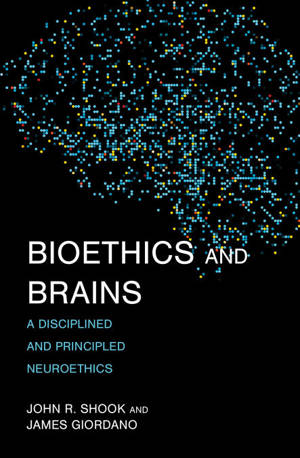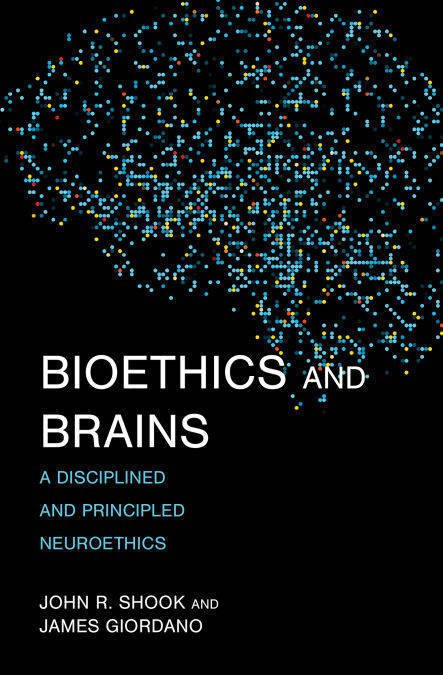
- Afhalen na 1 uur in een winkel met voorraad
- Gratis thuislevering in België vanaf € 30
- Ruim aanbod met 7 miljoen producten
- Afhalen na 1 uur in een winkel met voorraad
- Gratis thuislevering in België vanaf € 30
- Ruim aanbod met 7 miljoen producten
Zoeken
€ 59,14
+ 59 punten
Omschrijving
How neuroethics can be increasingly relevant and informative for inclusive social policy and political discourse about brain science and technologies.
Neuroethics, a field just over two decades old, addresses both ethical issues generated in and by brain sciences and the neuroscientific studies of moral and ethical thought and action. These foci are reciprocally interactive and prompt questions of how science and ethics can and should harmonize. In Bioethics and Brains, John R. Shook and James Giordano ask: How can the brain sciences inform ethics? And how might ethics guide the brain sciences and their real-world applications?
The authors’ structure for a disciplined neuroethics reconciles science and ethics by requiring ethical principles consistent with moral neuroscience and moral psychology. Their cosmopolitan perspective looks beyond Western theories toward a new metaethics for neuroethics and illustrates its approach in chapters that address the issues and approaches to questions and problems generated by the proliferation of neurotechnology in global contexts. Shook and Giordano posit that neuroethics can merge science and ethics toward establishing global consensus on guiding brain research, neurotechnological innovation, and grounding neurorights.
Neuroethics, a field just over two decades old, addresses both ethical issues generated in and by brain sciences and the neuroscientific studies of moral and ethical thought and action. These foci are reciprocally interactive and prompt questions of how science and ethics can and should harmonize. In Bioethics and Brains, John R. Shook and James Giordano ask: How can the brain sciences inform ethics? And how might ethics guide the brain sciences and their real-world applications?
The authors’ structure for a disciplined neuroethics reconciles science and ethics by requiring ethical principles consistent with moral neuroscience and moral psychology. Their cosmopolitan perspective looks beyond Western theories toward a new metaethics for neuroethics and illustrates its approach in chapters that address the issues and approaches to questions and problems generated by the proliferation of neurotechnology in global contexts. Shook and Giordano posit that neuroethics can merge science and ethics toward establishing global consensus on guiding brain research, neurotechnological innovation, and grounding neurorights.
Specificaties
Betrokkenen
- Auteur(s):
- Uitgeverij:
Inhoud
- Aantal bladzijden:
- 252
- Taal:
- Engels
- Reeks:
Eigenschappen
- Productcode (EAN):
- 9780262380997
- Verschijningsdatum:
- 10/02/2025
- Uitvoering:
- E-book
- Beveiligd met:
- Adobe DRM
- Formaat:
- ePub

Alleen bij Standaard Boekhandel
+ 59 punten op je klantenkaart van Standaard Boekhandel
Beoordelingen
We publiceren alleen reviews die voldoen aan de voorwaarden voor reviews. Bekijk onze voorwaarden voor reviews.







